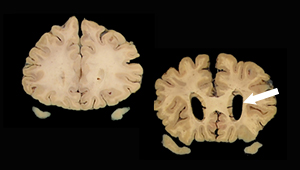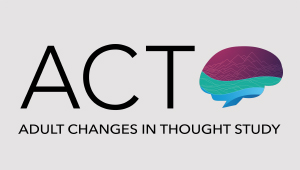Chloe Krakauer, PhD, MS
Biography
Dr. Krakauer is a collaborative biostatistician whose research interests include decision theory, Bayesian statistics, missing data, selection bias, and quantitative communication. Dr. Krakauer received her PhD in biostatistics from the University of Washington in 2021. Her dissertation spanned 2 statistical fields of study: missing data and decision theory.
In her first project, Dr. Krakauer and Dr. Mauricio Sadinle developed a method to estimate the association between potential health determinants and a health outcome that is subject to missing data, or “missingness.” Under these circumstances, investigators must generally make strong, unverifiable assumptions about the reason for missingness to conduct analyses. By using data on the outcome from sources outside the current study, the novel methodology negates the need to make such strong assumptions.
Her second and third projects, with Dr. Kenneth Rice, used decision theory — or decisions based on explicit relative losses for “incorrect” decisions. Drs. Krakauer and Rice applied decision theory to better interpret the evidential worth of significance tests. This research may be used to justify lowering the typical significance threshold of 0.05 and discourage overinterpretation of p-values that just surpass the current typical significance threshold. They further applied decision theory to reducing the Winner’s Curse — bias incurred for limiting reported research results to those that are statistically significant, as is often the case.
At KPWHRI, Dr. Krakauer is currently a statistician with the Adult Changes in Thought (ACT) study, which aims to find ways to prevent or delay dementia, and the STRIPE study, a pragmatic clinical trial on methods to manage pain. She has previously contributed to studies and grant proposals on smoking cessation and dental health with Oral Health for Life (OH4L), quality of health care at small practices with Healthy Hearts Northwest (H2N), meningitis vaccination strategies, pharmaceutical pricing, and cancer screening procedures.
Research Interests and Experience
-
Aging & Geriatrics
-
Behavior Change
Dental care
-
Biostatistics
Missing data, Bayesian statistics, decision theory, selection bias
-
Chronic Illness Management
-
-
Health Services & Economics
Quality of care at small practices
Recent Publications
Lee CS, Krakauer C, Su YR, Walker R, Blazes M, McCurry SM, Bowen JD, McCormick WC, Lee AY, Boyko E, O'Hare A, Larson EB, Crane PK. Diabetic retinopathy and dementia association, beyond diabetes severity. Am J Ophthalmol. 2022 Dec 10:S0002-9394(22)00486-X. doi: 10.1016/j.ajo.2022.12.003. [Epub ahead of print]. PubMed
Hughes JP, Williamson BD, Krakauer C, Chau G, Ortiz B, Wakefield J, Hendrix C, Amico KR, Holtz TH, Bekker LG, Grant R. Combining information to estimate adherence in studies of pre-exposure prophylaxis for HIV prevention: application to HPTN 067. Stat Med. 2022 Jan 25. doi: 10.1002/sim.932. [Epub ahead of print]. PubMed
Coleman KF, Krakauer C, Anderson M, Michaels L, Dorr DA, Fagnan LJ, Hsu C, Parchman ML. Improving quality improvement capacity and clinical performance in small primary care practices. Ann Fam Med. 2021 Nov-Dec;19(6):499-506. doi: 10.1370/afm.2733. PubMed
Krakauer C, Rice K. Chloe Krakauer and Kenneth Rice’s contribution to the discussion of ‘testing by betting: a strategy for statistical and scientific communication’ by Glenn Shafer. J R Stat Soc Series A. 2021;184:432-478. https://doi.org/10.1111/rssa.12660. PubMed
McClure JB, Anderson ML, Krakauer C, Blasi P, Bush T, Nelson J, Catz SL. Impact of a novel oral health promotion program on routine oral hygiene among socioeconomically disadvantaged smokers: results from a randomized semi-pragmatic trial. Transl Behav Med. 2019 Feb 12. pii: 5316179. doi: 10.1093/tbm/ibz009. [Epub ahead of print]. PubMed
Blasi PR, Krakauer C, Anderson ML, Nelson J, Bush T, Catz SL, McClure JB. Factors associated with future dental care utilization among low-income smokers overdue for dental visits. BMC Oral Health. 2018 Nov 1;18(1):183. doi: 10.1186/s12903-018-0646-8. PubMed
- ← Previous
- 1
- 2 (current)
- Next →
Research

Digital tool could help people change smoking habits
A mobile application designed to engage smokers who are ambivalent about quitting shows promising results.
Research

Study evaluates biomarker criteria for Alzheimer’s risk
One-third of people classified as ‘highest risk’ may not develop Alzheimer’s disease, study suggests
Learn About the ACT Study

Understanding brain aging
For over 30 years, the Adult Changes in Thought (ACT) Study has been advancing our understanding of cognition, aging, and better ways to delay and prevent Alzheimer’s disease and related dementias.



